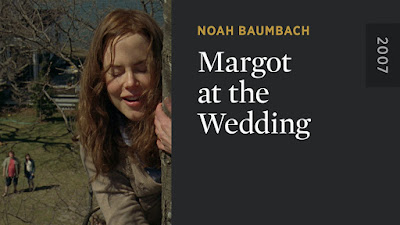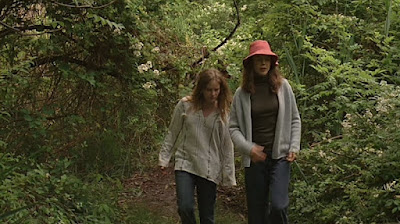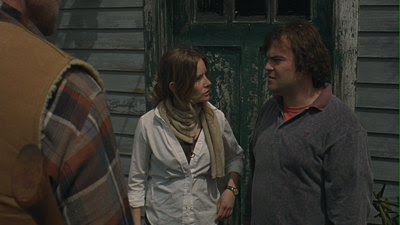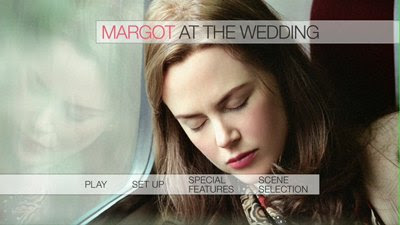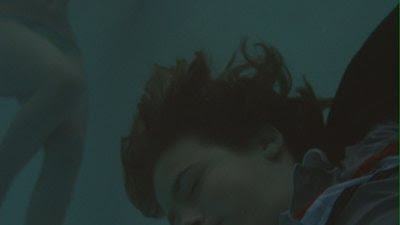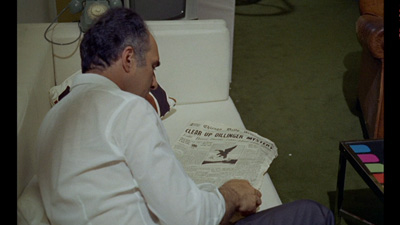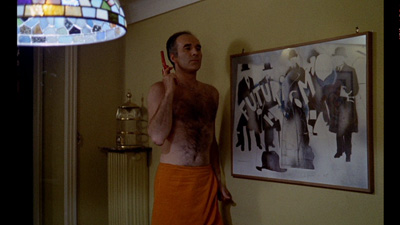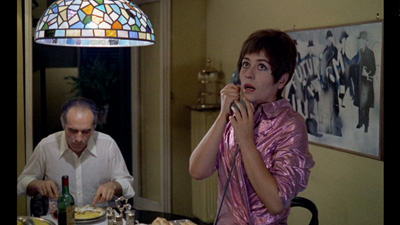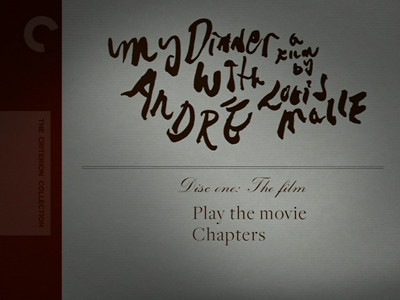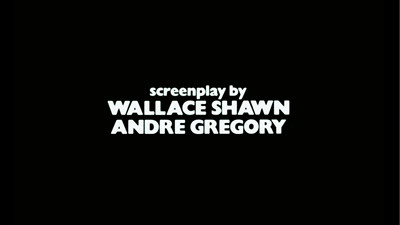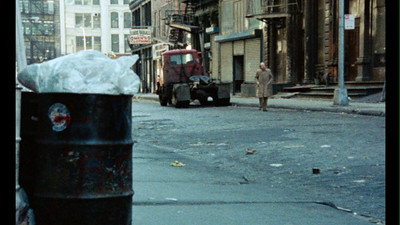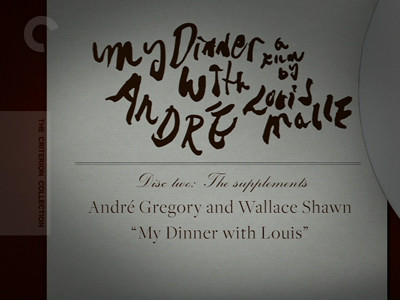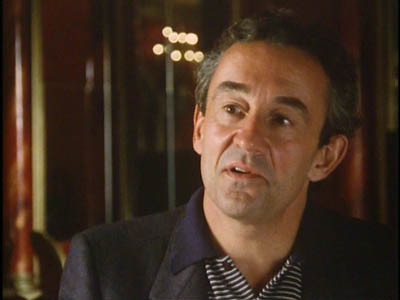A rare case where I was able to re-examine a movie, and where I changed my mind.
ORIGINAL THEATRICAL REVIEW - NOVEMBER 2007 [source]
Noah Baumbach's Margot at the Wedding is another dysfunctional, comical family dramas of the kind the writer/director does so well. Though maybe not as good as his breakout 2005 hit The Squid and the Whale, Margot is of the same ilk: smart, literate, and self-deflating.
Margot (Nicole Kidman) is a popular author of high-brow family dramas, probably not entirely dissimilar to the one she currently finds herself occupying. In fact, given some of the resentment her sister Pauline (Jennifer Jason Leigh) expresses in regards to her personal life being fodder for past fiction, it's safe to say Margot writes her stories exactly like the life she and her family live. The strain of these resentments, as well as the shared memory of an abusive father, has divided the sisters, who haven't talked in several months. They have a third, unseen sibling named Becky who apparently got the brunt of their upbringing. Her problems are the only things Margot and Pauline can truly agree on, reserving their most judgmental tones and cruel giggles for conversations about everything that's wrong with Becky.
A temporary reconciliation has been reached between Margot and Pauline in light of Pauline's approaching marriage to Malcolm (Jack Black). This will be the second marriage for Pauline, the first one having fallen apart when Margot exposed its darkest guts in a New Yorker short story. Pauline has one child from the old marriage, a pre-pubescent girl named Ingrid (Flora Cross). Margot has two children, one of whom she brings with her. Claude (Zane Pais) is her favorite son, a mama's boy who is reaching that age where strange smells are emerging from his armpits and girls' breasts capture his attention. Not exactly the best time for being in a family crisis, but little does Claude know, he's got one coming. Margot hasn't decided to visit her baby sis for wholly selfless reasons, oh no.
Noah Baumbach is amused by intellectual phonies, and he loves to let the air out of their tires. In his college drama Kicking and Screaming [review], he portrayed young people in transition, having to face up to the real world where the pretentious theories of the classroom neither paid the rent nor got them over snares in romance. The father in The Squid and the Whale, played with convincing self-delusion by Jeff Daniels, likes to pretend that growing up means never having to stop quoting Breathless [review] in the original French. When he does so, Baumbach's sleight of hand is clear: he can pull the pin on these toy hand grenades because he knows that the difference between the real and the plastic is very slim. The only separation between himself and the misguided characters he writes about is that he's holding the pen.
Margot may be Baumbach's most conflicted character yet. We meet her at that crossroads where her illusions about her safe little world are very near shattering. She prides herself on being able to diagnose what ails others, and she has no fear telling those people exactly what she thinks is wrong with them. Yet, her assessments are capricious, and she doesn't always stick with one opinion for long. She is also deathly afraid of confessing her own problems, hence leaving Claude in the dark about the impending divorce of his parents. Margot is the kind of role that Nicole Kidman does like no one else. She's frail and trembling, yet also intimidating. She's often the smartest in the room, the most good looking, even the tallest, and she uses that to her advantage just as much as she uses a glass of white wine with an ice cube to maintain her icy distance.
Even so, Kidman conjures a persistent ache for Margot. Her eye for illness is just as turned inward as it is out. Her obsession borders on hypochondria. Despite her maddening changes of tune and comical theories on everything from mothering to relationship politics, when her full vulnerability comes through, we still manage to feel for her. In one of the movie's best scenes, Margot gets thrown under a bus at a public appearance at a bookstore, and she ends up tearfully revealing how much living has started to scare her. The compulsions that drive her to pick life apart are also picking apart her own. The scene also gives Jennifer Jason Leigh a chance to show her sensitive side. Both actresses are very good in this movie and well cast as siblings.
The relationship between Pauline and Malcolm gives Margot ample opportunity to dole out criticism. The more she focuses on the problems she perceives between them, the further she can push back her own issues. Margot tells Claude that Pauline is crazy, one of the many indiscretions that betrays the sister's trust, but Pauline seems ridiculously together by comparison. Malcolm is also an easy scapegoat for Margot's ire: a jobless musician turned painter who spends more time writing pointless letters to magazines than he does wielding a brush. Normally, Jack Black's preening performances are enough to make me stay away from a movie, but Noah Baumbach is just the right director for the comedian. The austere tone of Margot at the Wedding cages the performer, and Baumbach lets him out for well-timed outbursts. What's great, though, is there is more going on here than just quick temper tantrums. Malcolm is riddled with doubt, and his breakdowns push Jack Black to go deeper with it rather than just relying on his usual bag of tricks. It's his best role since High Fidelity, kind of like Barry has grown up and discovered what a loser he really is.
For Margot at the Wedding, Baumbach adopts a more cinema verite style, letting the overcast skies of the coastline where Pauline lives cast a gray pall over everything. Cinematographer Harris Savides shot the movie using older lenses and mostly natural light, and the jerky camera movements and quick cuts give Margot at the Wedding a spontaneous and intimate atmosphere. Given how often the plot is advanced by someone peeking through holes in walls or listening to a conversation from outside a door, the movie gives the viewer the impression that he or she is spying in on something they weren't actually invited to witness.
The only downside of Margot at the Wedding is that at times it may be too smart for its own good. Though Baumbach doesn't make too much of the metaphor of the family tree that needs to be cut down despite denials that it's really rotting or even make his set-ups for later plot devices too obvious, he does lose his way in the labyrinth of lies once or twice. Luckily for him, he always has a dry, sardonic joke waiting to put the train back on track, and luckily for us, he isn't so bitter with cynicism that he forgets to have a heart. Making things fall apart is easy, but Noah Baumbach has enough going on, he is ultimately able to put Margot at the Wedding back together in ways that are both unexpected and satisfying.
DVD REVIEW - FEBRUARY 2008 [source]
